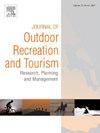“作为一种职业的导游和作为一种存在方式的导游并不总是一致的”:探索美国西部以自然为基础的旅游导游的医疗保健机会、复原力和主观幸福感
IF 4.4
3区 管理学
Q1 HOSPITALITY, LEISURE, SPORT & TOURISM
Journal of Outdoor Recreation and Tourism-Research Planning and Management
Pub Date : 2025-07-05
DOI:10.1016/j.jort.2025.100917
引用次数: 0
摘要
随着以自然为基础的旅游业日益突出,一支健康的劳动力队伍对于保持参与者和整个行业的成功成果是必要的。尽管有大量证据表明自然旅游体验对参与者有益,但有限的科学文献侧重于自然旅游导游的健康体验和成果。本研究向美国西部以自然为基础的旅游导游传播了一项在线调查,以收集定量和定性数据,这些数据询问了卫生保健获取和福祉的各个方面,并试图确定导游指出的有助于其健康结果的独特因素。调查结果表明,指南报告的复原力显著预测了主观幸福感的差异,指南还确定了影响其健康的其他因素,如社区力量、工作场所环境和获得医疗保险的机会。这些发现有助于为基于自然的旅游经营者和管理者提供建议,以支持导游和季节性工作人员的整体健康和福祉。管理启示本研究调查了影响自然导游健康和幸福的各种因素。由于导游是为游客提供成功和可持续的旅游体验不可或缺的组成部分,我们的研究结果强调,以自然为基础的旅游管理者需要考虑并优先考虑其员工健康和福祉的重要性。这些管理策略可能包括提供或外包可以保护或支持指南的资源。根据我们的研究结果,关注的主题包括复原力、健康保险覆盖范围、工作场所冲突缓解和沟通策略、骚扰和歧视培训和/或获得身心健康服务。此外,在公司内部整合健康和福利评估的程序可以帮助进一步定制培训,以适应每项业务的需要。这些发现可能适用于其他类型的户外、季节性工作,包括旅游和户外娱乐行业。本文章由计算机程序翻译,如有差异,请以英文原文为准。
“Guiding as a profession and guiding as a way of being do not always align”: Exploring health care access, resilience and subjective well-being of nature-based tourism guides in the western United States
With the increasing prominence of nature-based tourism, a healthy workforce is necessary to sustain successful outcomes for participants and the industry as a whole. Despite substantial evidence of the benefits of nature-based tourism experiences for participants, limited scientific literature focuses on the health experiences and outcomes of nature-based tourism guides. This study disseminated an online-based survey to nature-based tourism guides in the western United States to collect both quantitative and qualitative data that inquired about aspects of health care access and well-being, as well as sought to identify unique factors guides indicate as contributing towards their health outcomes. Findings show that guides reported resilience significantly predicted differences in subjective well-being, and guides identified additional factors that impacted their health such as community strength, workplace environment, and access to health coverage. These findings help inform suggestions for nature-based tourism operators and managers to support the overall health and well-being of guides and seasonal staff.
Management implications
This study examined various factors that contribute to the health and well-being of nature-based tour guides. As guides are an integral component to executing successful and sustainable tourism experiences for visitors, our research findings emphasize the need for nature-based tourism managers to consider and prioritize the importance of the health and well-being of their staff. These management strategies may include providing or outsourcing resources that can protect or support guides. According to our findings, topics of concern include resilience, health insurance coverage, workplace conflict mitigation and communication strategies, harassment and discrimination trainings, and/or access to mental and physical health services. Furthermore, procedures that integrate health and well-being assessments within the company can help to further tailor trainings to fit the needs of each operation. These findings likely translate to other types of outdoor, seasonal work within the tourism and outdoor recreation professions.
求助全文
通过发布文献求助,成功后即可免费获取论文全文。
去求助
来源期刊

Journal of Outdoor Recreation and Tourism-Research Planning and Management
HOSPITALITY, LEISURE, SPORT & TOURISM-
CiteScore
6.70
自引率
5.30%
发文量
84
期刊介绍:
Journal of Outdoor Recreation and Tourism offers a dedicated outlet for research relevant to social sciences and natural resources. The journal publishes peer reviewed original research on all aspects of outdoor recreation planning and management, covering the entire spectrum of settings from wilderness to urban outdoor recreation opportunities. It also focuses on new products and findings in nature based tourism and park management. JORT is an interdisciplinary and transdisciplinary journal, articles may focus on any aspect of theory, method, or concept of outdoor recreation research, planning or management, and interdisciplinary work is especially welcome, and may be of a theoretical and/or a case study nature. Depending on the topic of investigation, articles may be positioned within one academic discipline, or draw from several disciplines in an integrative manner, with overarching relevance to social sciences and natural resources. JORT is international in scope and attracts scholars from all reaches of the world to facilitate the exchange of ideas. As such, the journal enhances understanding of scientific knowledge, empirical results, and practitioners'' needs. Therefore in JORT each article is accompanied by an executive summary, written by the editors or authors, highlighting the planning and management relevant aspects of the article.
 求助内容:
求助内容: 应助结果提醒方式:
应助结果提醒方式:


